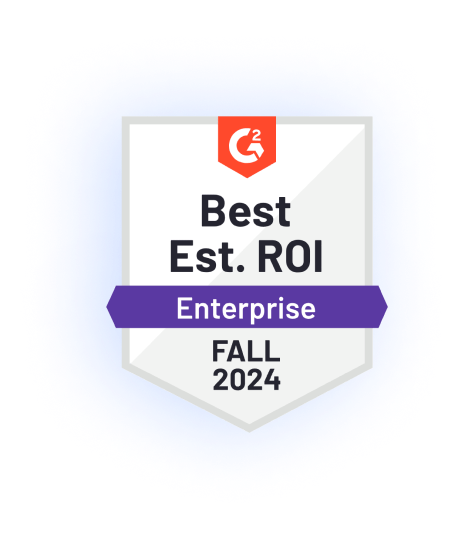Customer Feedback
Actionable Customer Intelligence. Game-Changing Outcomes.
Collect and connect experience data in every format across every customer interaction

Survey Responses
Ratings & Reviews
Digital Feedback
Chat Logs
Call Transcripts
Email Threads
Operational Metadata
Easily Ingest Every Signal with an Open Platform
Our modern, big-data architecture, Workflow™, is our patented data agnostic software that reduces the time it takes to get data in our system by orders of magnitude.
Combined with our flexible data lake, we synthesize all types of feedback for the most cost efficient data management solution.
Learn MoreGenerative AI Prompts for More Valuable Responses
Without encouragement, qualitative feedback can be incomplete. Active Listening™ is the only conversational bot that uses real-time text analytics and generative AI to listen, understand, and respond (in customers’ natural language)—eliciting the richest responses with more actionable data points.
Learn MoreGenerate the Richest Insights
Then, we help you navigate and interpret your structured and unstructured data to understand where to focus for the highest impact for your customer and business. Through artificial and human intelligence, augment collected feedback with indirect & inferred data to build your insights capability from descriptive, to predictive, and then to prescriptive.
Proprietary AI for Optimal Understanding
As pioneers in applying AI to unstructured CX data, InMoment has the only in-house Large Language Model (LLM) technology in the industry giving us complete control of model development. An award-winning NLP engine trained using 15+ years of CX-specific data & inputs, we deploy NLP and AI to make sense of every byte of experience data.
Predict Impact, and Identify Where to Focus
Predict and preempt your customers’ next moves and intentions by synthesizing structured and unstructured data in one platform. Artificial Intelligence guided and maximized by human expertise generates the most accurate impact predictions that have the greatest return for your business.
Learn MoreDrive the Smartest Actions
Finally, we partner with you to create repeatable, smarter systems of action across the organization that demonstrate tangible short- and long-term ROI.
Easy Employee Coaching that Impacts Your Bottom Line
Automate closed-loop processes with AI-generated responses – increase satisfaction and reduce cost to serve. Industry-specific action plans inform change management strategies, reduce customer churn, and empower employee engagement. Capture the voice of employee when closing a case to identify root cause and resolutions to systemic issues.
Reduce Cost to Serve with In-Survey Assistance
Our Rapid Resolution Engine reduces customer support tickets using real-time text analytics within the survey to provide solutions to common issues Automatically route customers to self help tutorials that resolve issues the first time, without the need to log a call with your agents.
Socialize the Impact of CX Initiatives
Foster customer centricity at the frontline with a clean mobile app that makes celebrating customer experience fun. Moments™ is easy, intuitive, and highly customizable so your teams spend less time sorting through data and more time with the people who matter most – your customers.

See ROI in Half the Time
InMoment’s integrated CX approach increases customer lifetime value and bottom line performance in just 12 months, significantly faster than the industry average of 25 months!
